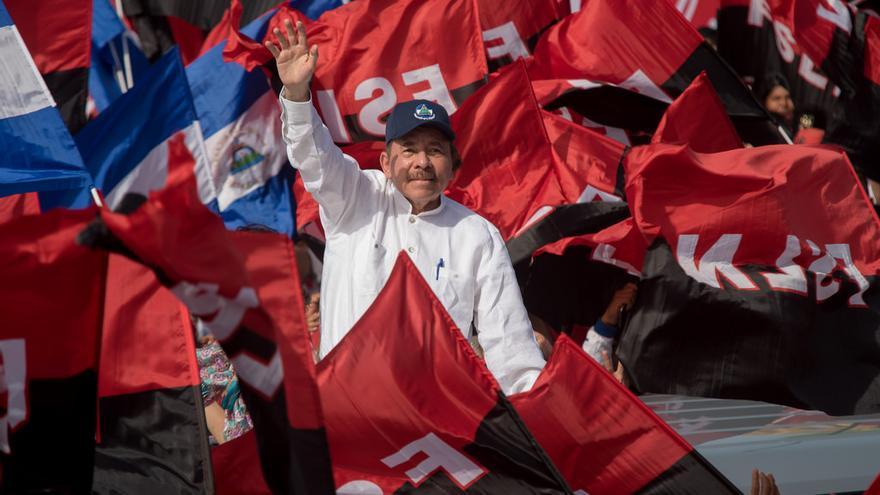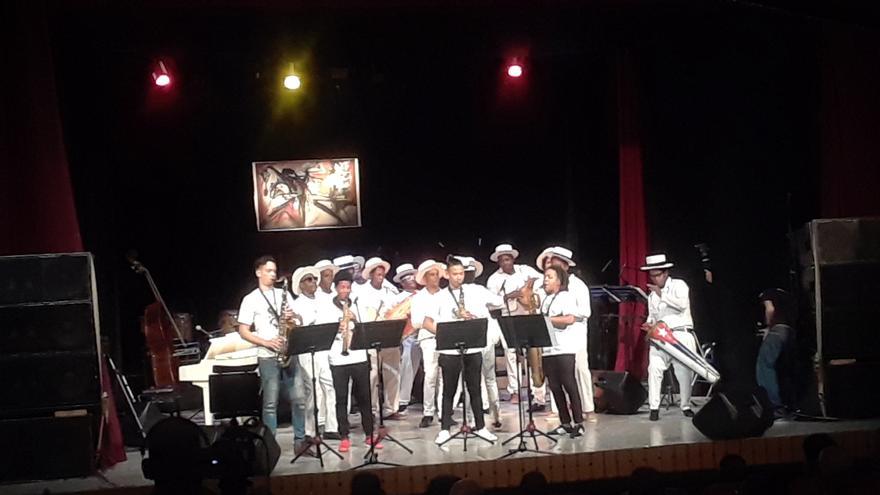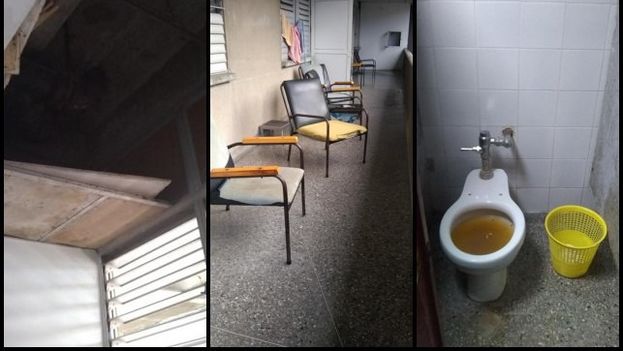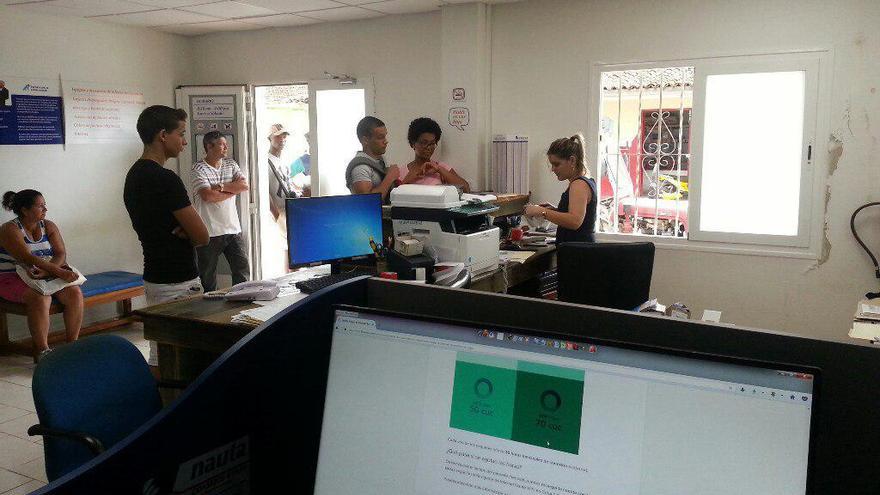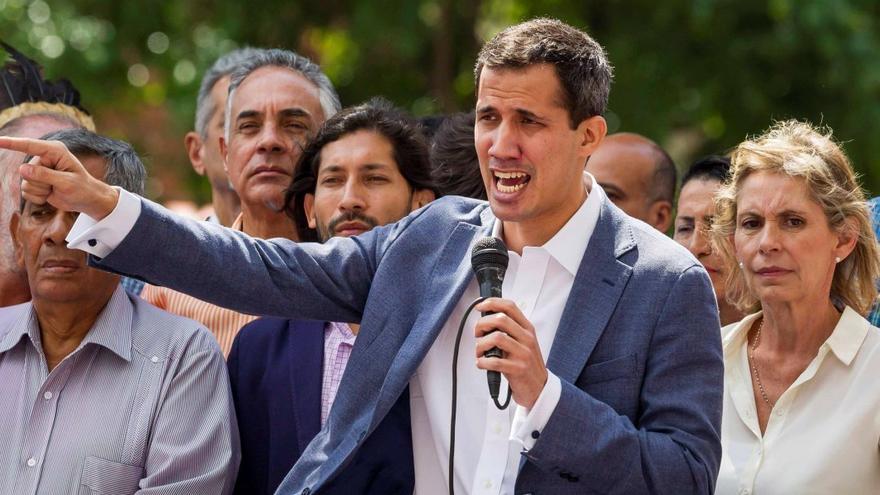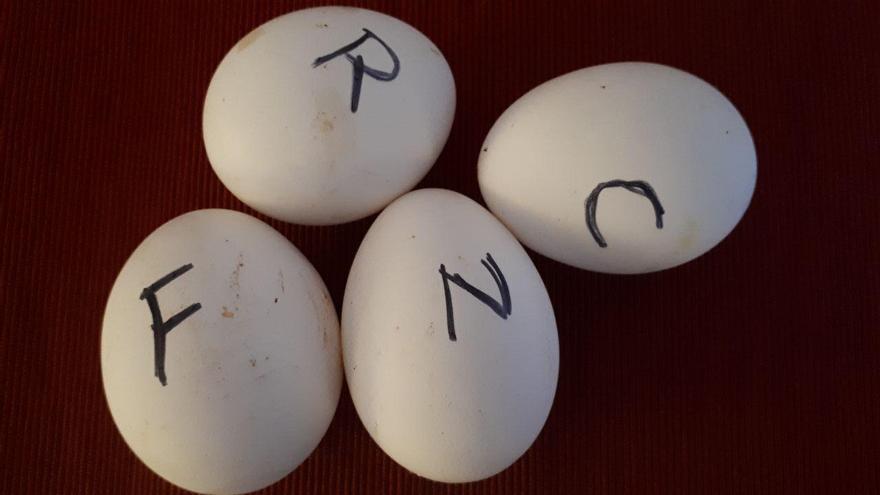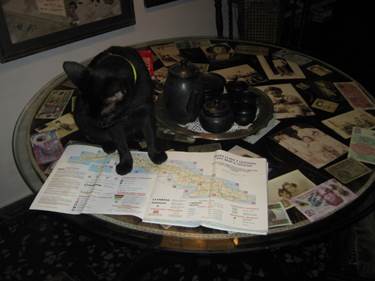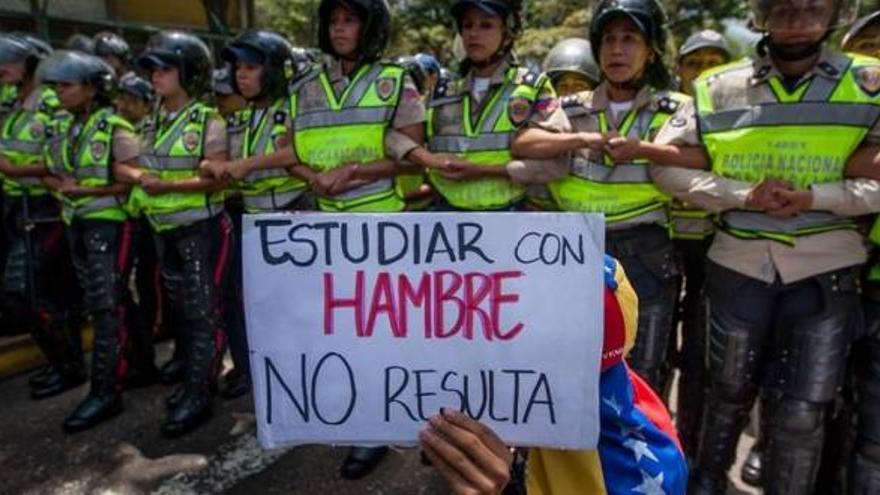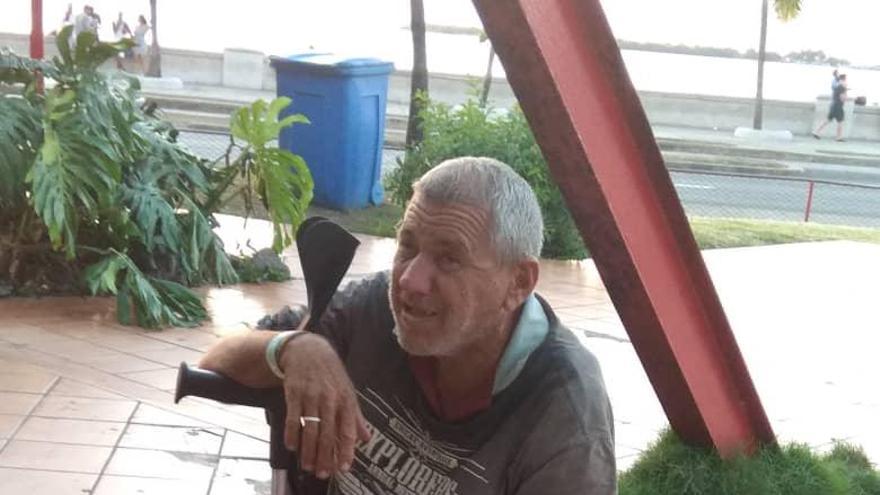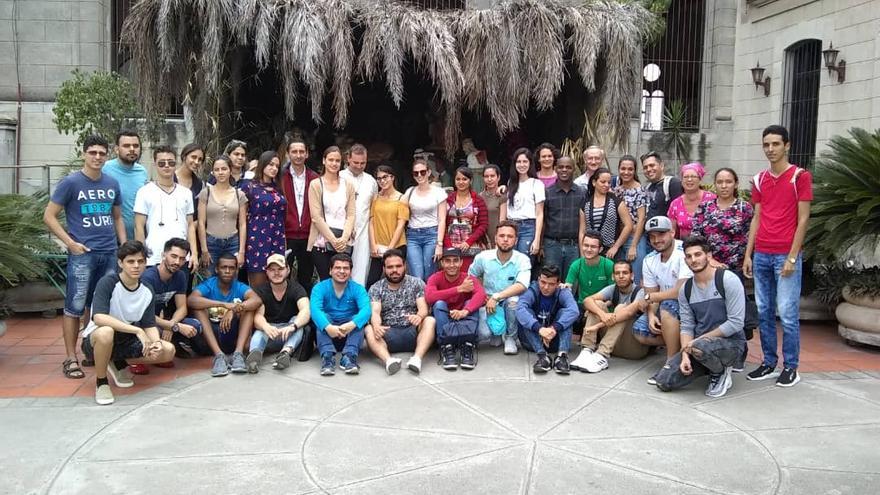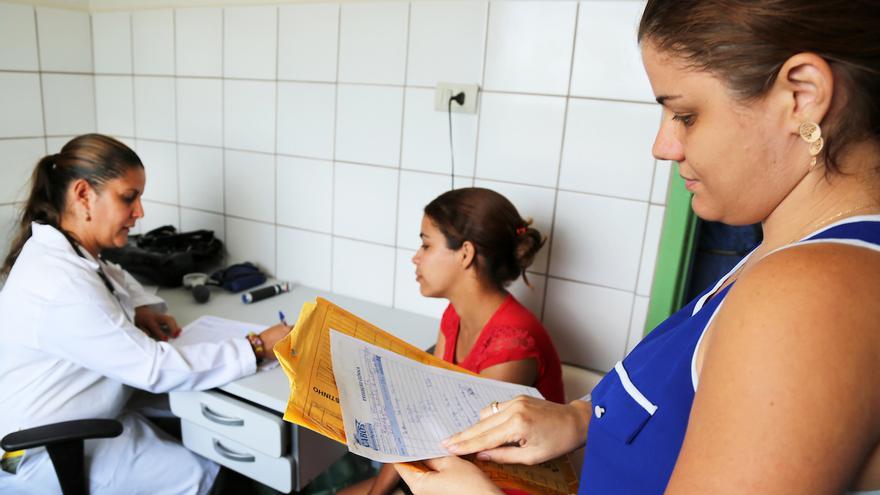
![]() 14ymedio, Marcelo Hernández, Havana, 22 January 2019 — The door did not close. While lying on the stretcher, naked from the waist down, the patient could see the faces of those who waited outside the examination room. After that experience she spent years without visiting a hospital for fear of again suffering a violation of her privacy, an element that is rarely taken into account in Cuban healthcare.
14ymedio, Marcelo Hernández, Havana, 22 January 2019 — The door did not close. While lying on the stretcher, naked from the waist down, the patient could see the faces of those who waited outside the examination room. After that experience she spent years without visiting a hospital for fear of again suffering a violation of her privacy, an element that is rarely taken into account in Cuban healthcare.
With medical care statistics that can compete with any developed country, Cuba fails to protect the privacy of patients or the confidentiality of clinical records. Complaints of indiscretions, leaking of medical information, or people who burst in the middle of a consultation are common in the hospitals of the Island. continue reading
The problem is frequent in the 10,800 medical offices in the country and more than 450 general hospitals, but the complaints mount in maternal hospitals.
“Our delivery rooms are shared and it is common for two women to be giving birth at the same time in one of them,” a doctor from the Gynecology and Obstetrics Hospital Ramón González Coro, who preferred to remain anonymous, told this paper. “Many patients complain of lack of privacy in such an intimate moment.”
In the delivery rooms of this Havana hospital, it is established that a screen is placed in the middle of the two patients to offer more privacy during childbirth, but sometimes “the haste with which the medical staff works and their own movement, from one side to the other, prevent that visual barrier from remaining in place,” confesses the obstetrician.
Yadira, who gave birth at the González Coro at the end of last year, confirms it. “It was my first delivery and what scared me the most was going into the room and seeing a woman who was giving birth in front of the stretcher where they put me,” she says. “I felt shame for her because she was exposed to the eyes of strangers,” she says.
Yadira expressed her desire not to be in the same situation as the other pregnant woman. “They answered that when the baby was sticking his head out, what I would least care about is being seen naked,” she says. “I felt as if I were a box, a wrapping without the right to have my body and my privacy respected.”
Later, in the recovery room where Yadira stayed for three days, the nurses were going to stitch up the wound left by the episiotomy, a surgical cut that is made just before delivery. “Everything is done in front of the other patients who are in the room and when I complained, the employees mocked me and told me to stop being such a prude.”
“This type of behavior goes against everything that is taught in the medical schools of the country,” says Maricarmen Ferrer, a retired doctor who also participated in training of new doctors. “Since 1989, bioethics began to be taught in Cuban universities and an important part is respect for the patient’s privacy, even when the patient is not aware of it or can not demand it for herself”.
“Unfortunately, many of the medical facilities in the country do not have the conditions to provide more personalized and individual care,” acknowledges Ferrer. “Many times we have to work in offices in which the door does not close or, to put it directly, that do not have one, and so there is no way to provide a private space to the patient.”
The doctor, however, believes that part of the responsibility for violating the privacy and information of patients comes from the patients themselves. “Many do not knock on the door before entering, they arrive in the middle of a consultation and make comments about the person being treated or about others,” Ferrer warns. “It’s a problem of lack of education that affects us a lot.”
Ferrer believes that indiscretions and the violation of ethical protocols can even cause someone to abandon treatment. “Once I had to call out a newly graduated urologist because he peeked outside his office and asked aloud what patients were waiting to ’be seen for a problem of impotence.’ No one in the waiting room answered.”
However, these actions rarely come to be presented as complaints in the Ministry of Public Health or to be taken to court. Ivan, 32, is an HIV patient and lives in the municipality of San Miguel del Padrón in Havana. “All my neighbors know about my illness because the family doctor told a person who ended up spreading the information in the neighborhood,” he laments.
“At first I thought to file a report, but my friends convinced me not to because the damage was already done,” adds Ivan.
“After a lot of research, I was told that all that would come of it was an administrative sanction but that it was never going to reach the courts,” Ivan explains to 14ymedio. The indiscreet doctor was moved to another office, and the patient fears that wherever he is he can continue to “spread the private information of others.”
An investigation by the doctors Maylin Peña Fernández and Hiram Tápanes Daumy puts salt on the wound. In the opinion of these specialists the frequent “rotation” of doctors to different jobs causes the continuity in the treatment of patients to be lost and this also affects privacy.
In addition to the deficiencies in the functioning of the Health Service, the indifference of Cuban society explains this type of behavior, and this is reflected in the official press. The images of the injured or sick being treated in a hospital are frequent on national television. And, worse still, the government has repeatedly disseminated clinical details of opponents and activists.
Translated by: Michael S Brown
_________________________________
The 14ymedio team is committed to serious journalism that reflects the reality of deep Cuba. Thank you for joining us on this long road. We invite you to continue supporting us, but this time by becoming a member of 14ymedio. Together we can continue to transform journalism in Cuba.


